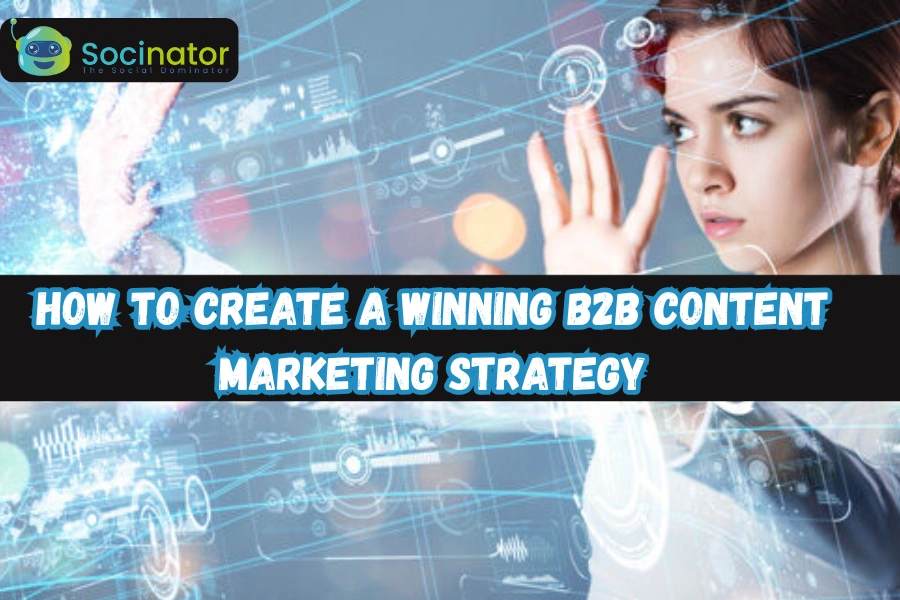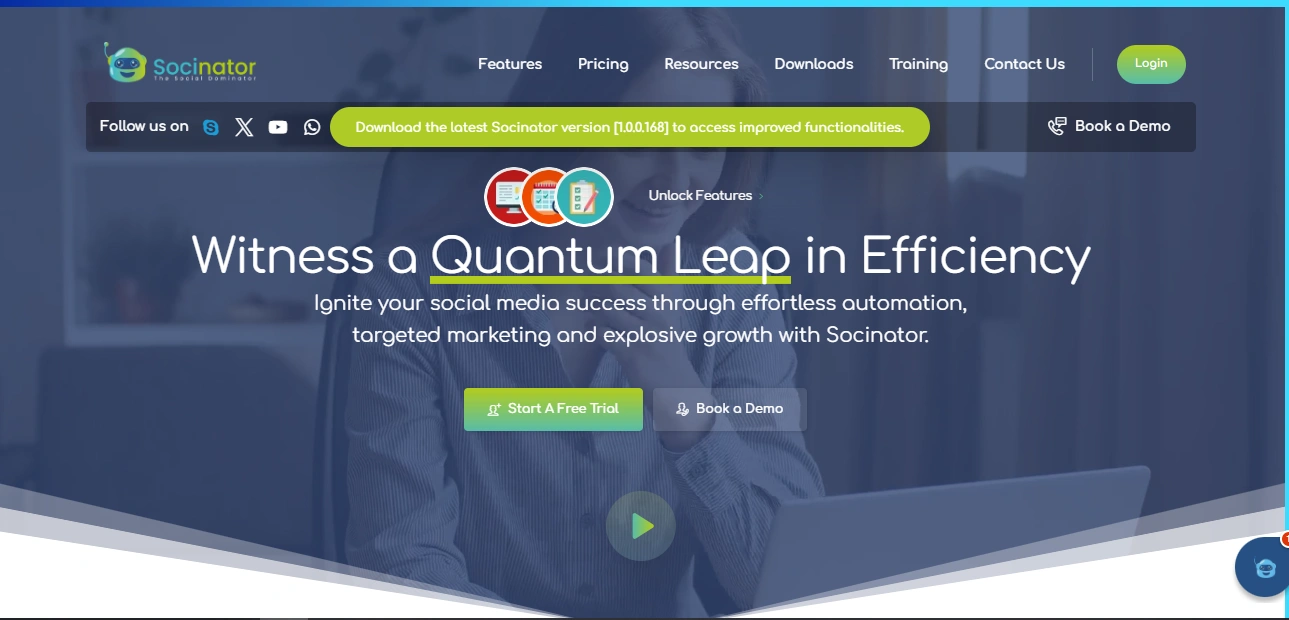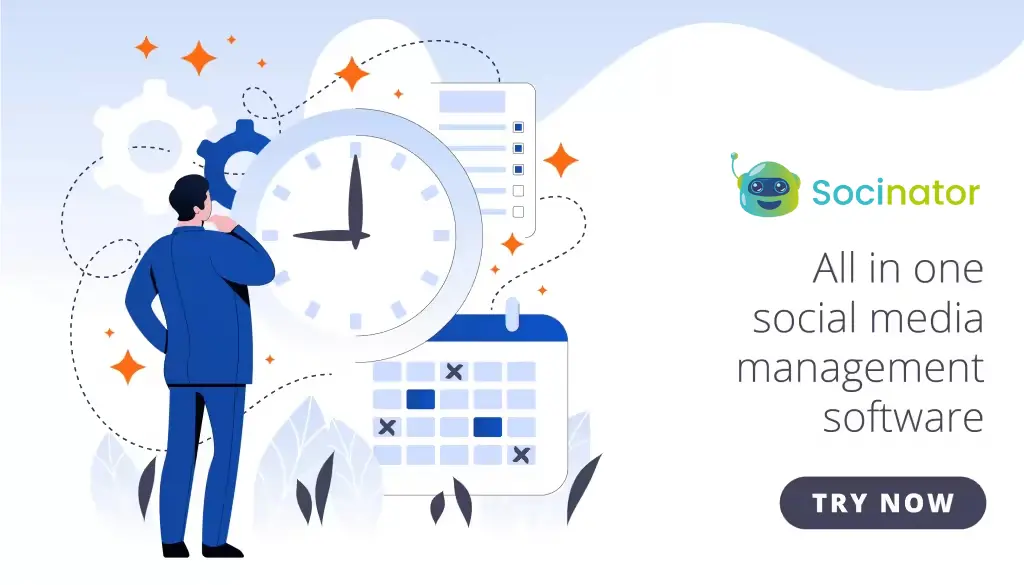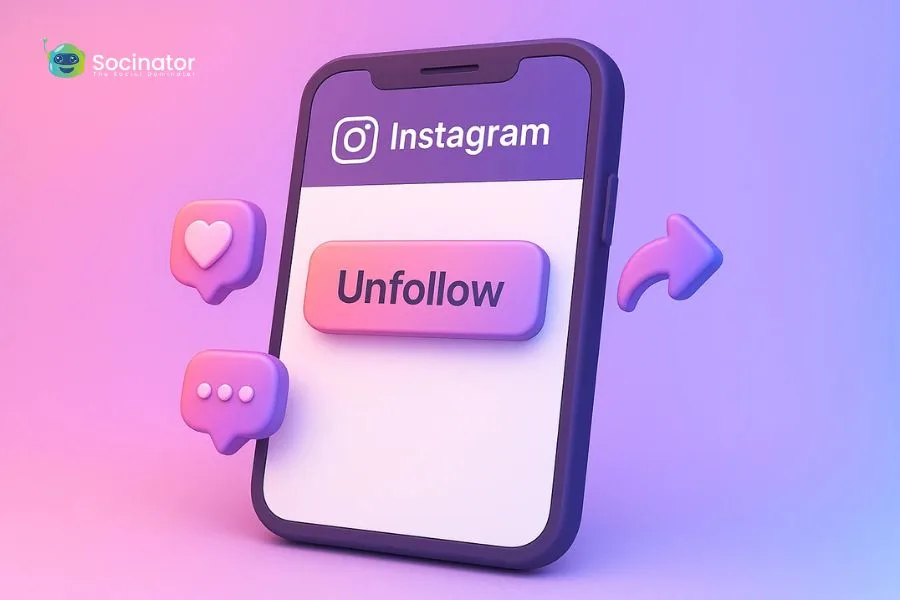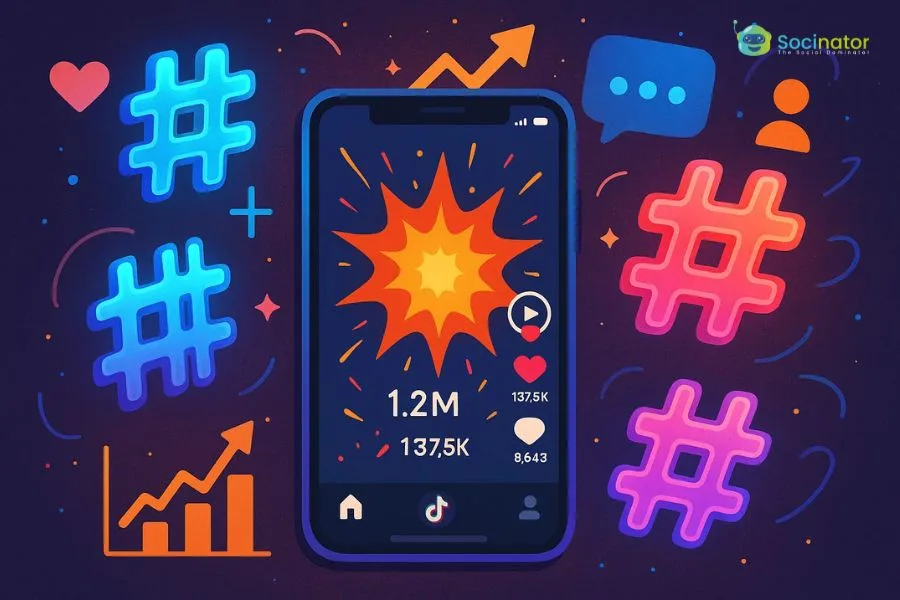The B2B world is more competitive than ever, making a clear content plan essential for success. A winning B2B content marketing strategy helps businesses engage the right decision-makers, establish authority, and drive measurable results. From crafting compelling content to distributing it effectively, every step matters in turning prospects into loyal clients.
This guide explores key strategies, best practices, and tools to create a content plan that delivers real impact.
In a hurry? Listen to the blog instead!
What Is A B2B Content Marketing Strategy And Why Does It Matter?
 A b2b content marketing strategy is a comprehensive plan that guides businesses on how to create, distribute, and measure content tailored to other businesses. Unlike B2C marketing, B2B content focuses on decision-makers, ROI, and long-term relationships.
A b2b content marketing strategy is a comprehensive plan that guides businesses on how to create, distribute, and measure content tailored to other businesses. Unlike B2C marketing, B2B content focuses on decision-makers, ROI, and long-term relationships.
Having a solid b2b content marketing strategy ensures that your messaging aligns with buyer personas, stages of the sales funnel, and industry trends. A well-structured strategy not only boosts brand awareness but also establishes authority in your niche, driving more qualified leads.
Implementing a robust b2b content marketing allows companies to target the right audience, reduce wasted marketing spend, and increase engagement with the right stakeholders.
How To Identify Your Target Audience For B2B Content?
Understand the importance of targeting:
- Targeting the right audience is the foundation of any B2B content marketing strategy.
- Focusing on the right companies, departments, and decision-makers ensures your content reaches those who benefit most.
Create detailed buyer personas:
Include key details such as:
- Job roles
- Pain points and challenges
- Preferred communication channels
These personas help you tailor content specifically for the people who matter.
Consider communication preferences:
Know whether your audience engages more through:
- LinkedIn messages
- Email newsletters
- Other platforms
Matching the medium to their preference improves engagement and response rates.
Align content with audience needs:
- Make sure your content addresses their problems and interests.
- Relevant content increases:
- Conversion rates
- Brand loyalty
Outcome:
- A well-defined target audience ensures your B2B content marketing strategy is effective and resonates with the right people.
Also Read:
10 Innovative B2B Content Marketing Strategies!
What Types Of Content Should You Include In Your B2B Strategy?
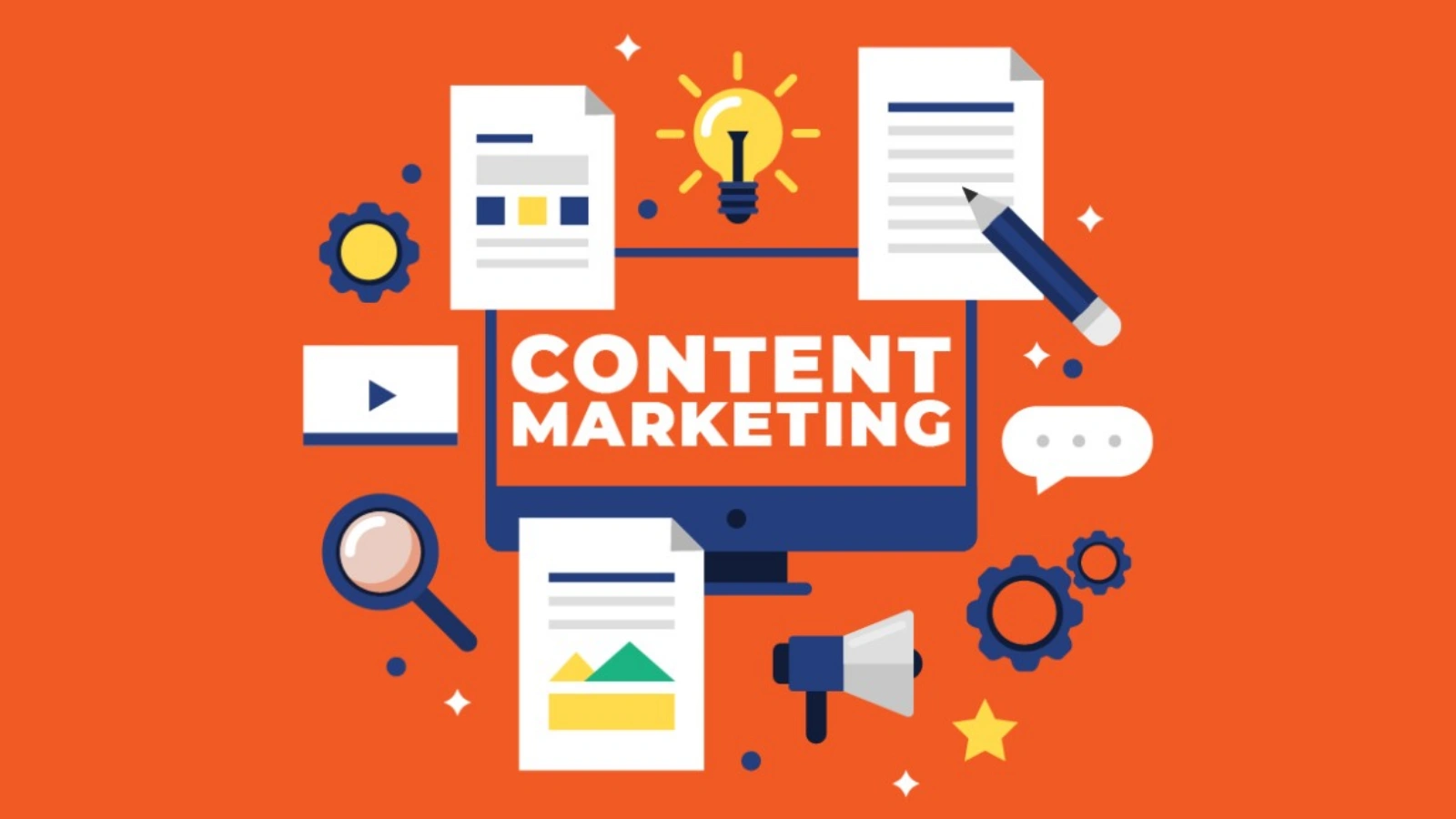 Choosing the right content types is essential to engage your audience, guide them through the buyer journey, and establish your brand as a trusted authority in B2B enterprise content marketing.
Choosing the right content types is essential to engage your audience, guide them through the buyer journey, and establish your brand as a trusted authority in B2B enterprise content marketing.
Types of Content to Include in Your B2B Strategy
Leverage a mix of content types:
A successful B2B enterprise content marketing strategy uses multiple formats such as blogs, whitepapers, case studies, newsletters, and infographics. Each type helps educate your audience, address their challenges, and move them closer to making a decision.
Incorporate B2B video marketing:
Adding B2B video marketing to your strategy allows you to capture attention more effectively. Videos, including product demos and explainers, help prospects understand complex solutions, build trust, and increase engagement.
Maintain audience engagement:
Using a variety of content ensures your audience stays interested and engaged. This approach reinforces your B2B content marketing strategy by positioning your brand as a thought leader in your industry.
Address every touchpoint:
Diversifying content types ensures your strategy covers all potential interactions with prospects, guiding them smoothly through every stage of the buyer journey.
How Can Social Media Support Your B2B Content Marketing Strategy?
Social media platforms, particularly LinkedIn, play a critical role in modern B2B marketing strategy. With the right approach, you can amplify your B2B content marketing efforts by sharing insights, engaging with decision-makers, and building credibility.
Using tools like social media automation allows teams to schedule posts, track engagement, and analyze performance, saving time while maintaining consistency. Integrating social media into your b2b content marketing strategy helps extend reach, increase visibility, and attract high-quality leads.
Platforms like LinkedIn are especially important for b2b marketing on LinkedIn, as it enables precise targeting of industry professionals and company decision-makers.
How Do You Plan A Content Calendar For Maximum Impact?
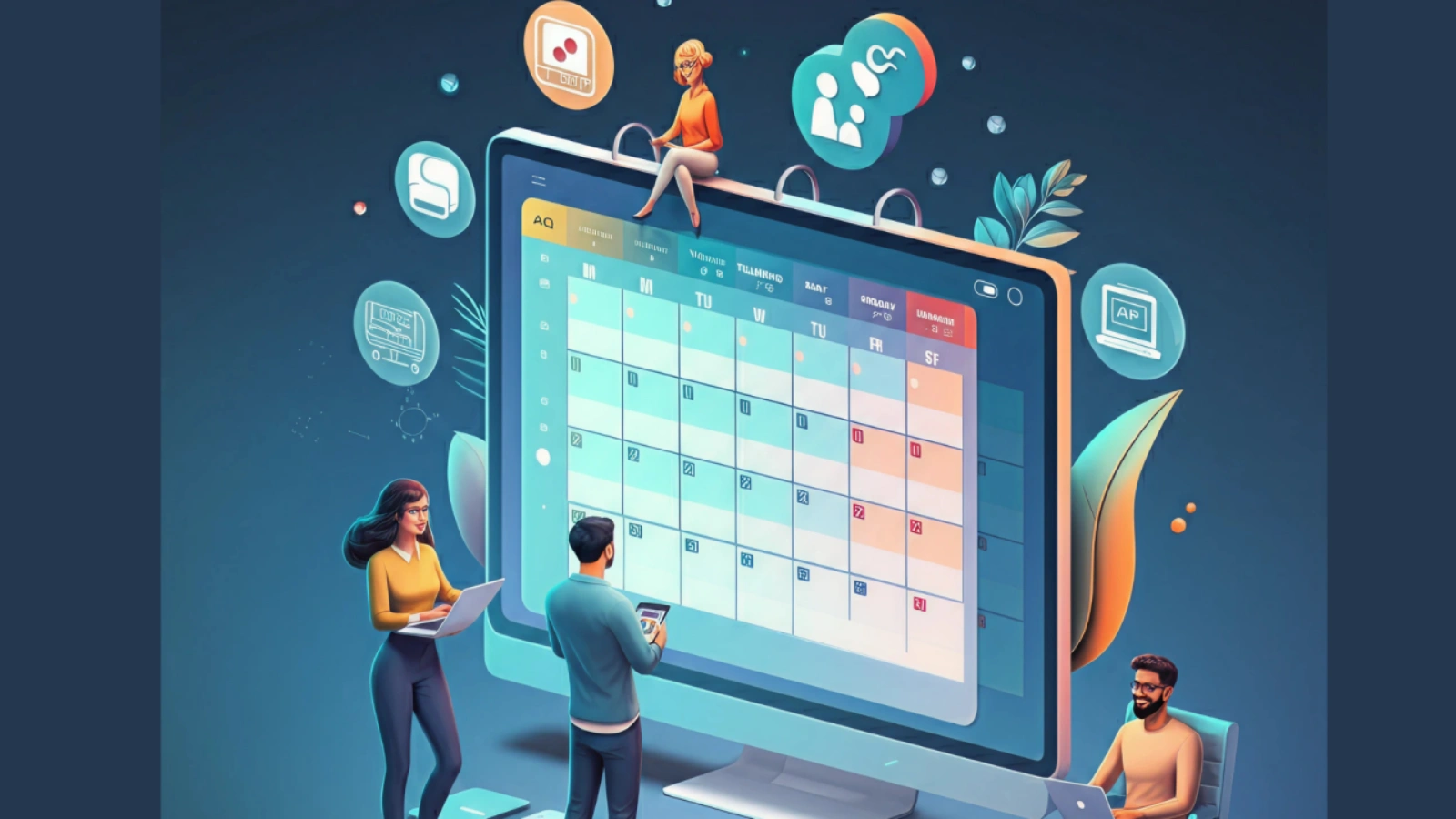 An organized content calendar is a key part of any successful B2B content marketing strategy, helping you stay consistent, relevant, and aligned with business goals.
An organized content calendar is a key part of any successful B2B content marketing strategy, helping you stay consistent, relevant, and aligned with business goals.
Ensure timely publishing:
A content calendar helps schedule posts in advance, avoiding last-minute rushes and ensuring your content reaches your audience when it matters most.
Align content with business objectives:
Planning ahead allows you to balance educational, promotional, and engagement-focused content. Including industry events, product launches, and seasonal trends makes your B2B content marketing strategy more effective and relevant.
Enhance team collaboration:
A well-structured calendar streamlines coordination between content creators, designers, and managers. This ensures consistency in messaging and maintains a cohesive brand voice across all content.
Maximize impact:
By carefully planning content in advance, you make sure every piece supports your overall strategy, strengthens audience engagement, and reinforces your position as a thought leader.
Also Read:
The Ultimate B2B Marketing Strategy And Procedure For 2022
The Ultimate Guide To LinkedIn Marketing For B2B
How Do You Measure The Success Of Your B2B Content Marketing Strategy?
Measuring success is essential to ensure your B2B content marketing strategy delivers real results and drives business growth.
- Track website traffic, lead quality, engagement rates, social shares, and conversion ratios to evaluate content performance.
- Use analytics and reporting tools to gain actionable insights into how your content impacts audience behavior and ROI.
- Monitor metrics over time to identify trends, optimize campaigns, and refine your content approach for better results.
- Compare performance against goals and benchmarks to justify marketing spend and demonstrate the value of your B2B content marketing strategy.
- Use insights from measurement to continuously improve content quality, audience targeting, and engagement strategies.
- Analyze which content types and formats generate the most leads to focus your efforts on high-performing assets.
- Track customer journey progression to understand how your content supports prospects at each stage of the B2B content marketing strategy funnel.
How Can Automation Improve Your B2B Content Workflow?
Automation can greatly enhance your B2B content marketing strategy by streamlining repetitive tasks and improving overall efficiency. Routine activities such as posting content, monitoring engagement, and tracking analytics can be automated, saving time and reducing the risk of errors.
Scheduling content in advance ensures consistency across multiple platforms and keeps your campaigns aligned with your strategy. Real-time performance monitoring allows marketing teams to make data-driven adjustments, optimizing results and increasing the impact of every piece of content.
Tools like Socinator take this a step further by providing a centralized dashboard to manage multiple platforms, schedule posts, and monitor analytics simultaneously. Integrating such automation tools into your B2B content marketing strategy helps teams scale operations, maintain consistent engagement, and free up time for creative planning without compromising quality.
Leveraging automation allows teams to work more efficiently, maintain consistency, and focus on creating content that delivers measurable results.
What Makes Socinator Essential For B2B Marketing?
Socinator is a comprehensive social media marketing software designed to help B2B marketers streamline their workflows, increase efficiency, and achieve measurable growth.
By integrating automation, analytics, and content management in one platform, Socinator becomes an indispensable tool for any b2b content marketing strategy. Here’s how it enhances your marketing efforts:
Social Media Scheduling:
Schedule posts across 9+ platforms, including LinkedIn, Facebook, Instagram, and Twitter, to ensure consistent engagement with your audience. This feature enables you to plan weeks of content in advance, maintain brand voice, and minimize manual posting errors.
Analytics & Insights:
Track content performance across platforms with detailed dashboards. Monitor likes, shares, comments, follower growth, and engagement rates to understand what works. Use these insights to optimize future campaigns and make data-driven decisions.
Automation Tools:
Save hours of manual effort with automated likes, comments, follows, direct messaging, and post sharing. Automation helps maintain engagement consistently, freeing marketers to focus on strategy and creative work.
Account Security:
Manage multiple social media accounts safely and efficiently. Socinator ensures account credentials are secure while providing easy access and management of several profiles without risk.
Proven Impact:
With a community of 5,000+ users and 100+ companies across 15+ countries, Socinator has proven its strength in scaling social media operations, improving lead generation, and powering impactful B2B content marketing—no matter the market or industry.
By integrating Socinator into your workflow, B2B marketers can not only save time but also enhance targeting, improve engagement, and gain actionable insights, making it a key asset in achieving long-term marketing success.
How Do You Use LinkedIn Effectively In A B2B Content Strategy?
 LinkedIn is a powerful platform for B2B marketing, offering direct access to decision-makers and a space to showcase your brand’s expertise.
LinkedIn is a powerful platform for B2B marketing, offering direct access to decision-makers and a space to showcase your brand’s expertise.
- Share insightful posts, case studies, and thought leadership content to position your brand as a trusted industry leader.
- Use LinkedIn automation software and tools to streamline posting schedules, track engagement, and manage connections efficiently.
- Maintain consistent outreach to save time while ensuring your audience stays engaged.
- Integrate LinkedIn into your B2B content marketing strategy to access decision-makers directly and generate high-quality leads.
- Engage with relevant industry groups, forums, and discussions to expand reach and build credibility.
- Encourage employee advocacy to amplify your content and increase brand visibility across networks.
- Monitor competitor activity and trending topics to stay relevant and adjust your content strategy.
- Analyze LinkedIn metrics such as impressions, engagement, and click-through rates to refine your approach.
- Use targeted LinkedIn ads to reach specific audiences and complement organic content efforts.
Effectively leveraging LinkedIn marketing for B2B within your strategy ensures consistent engagement, strengthens your industry presence, and drives higher-quality lead generation.
How Do You Continuously Improve Your B2B Content Marketing Strategy?
A successful strategy evolves with industry trends, analytics, and audience feedback. Regularly auditing content performance, testing new formats, and adjusting targeting ensures it remains relevant and effective.
Incorporate tools like Socinator for real-time insights, schedule optimization, and audience engagement analysis. Experiment with new channels, formats, and messaging to maintain a competitive advantage.
Continuous improvement ensures your strategy not only performs well today but also scales for future growth.
Conclusion:
A b2b content marketing strategy is no longer optional, it’s essential for driving leads, building authority, and increasing ROI. By integrating automation tools like Socinator, aligning content with sales goals, optimizing for SEO, and leveraging social platforms like LinkedIn, businesses can create a sustainable, effective strategy.
Remember, the key to success lies in consistency, measurement, and continuous improvement. A well-executed strategy helps companies grow, stay competitive, and connect meaningfully with their target audience.
FAQs
1. How can video content improve B2B engagement?
Video simplifies complex ideas and showcases products or success stories, increasing engagement and lead conversions. It’s highly effective on platforms like LinkedIn and YouTube.
2. How do you create content for multiple buyer personas?
Tailor content to each persona’s pain points, goals, and journey stage to ensure relevance. This boosts engagement and attracts more qualified leads.
3. How can social listening inform content strategy?
Social listening tracks trends, mentions, and customer needs to guide content creation. It ensures messaging stays relevant and resonates with your audience.

